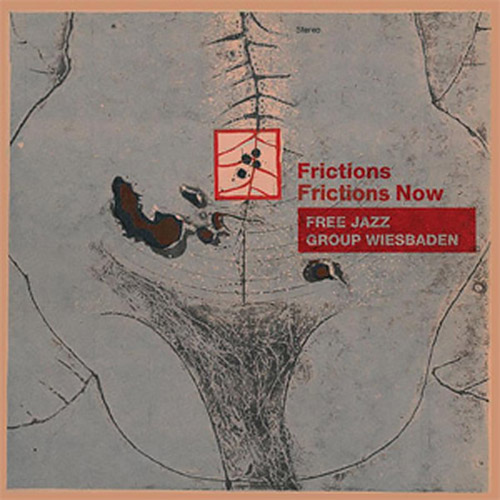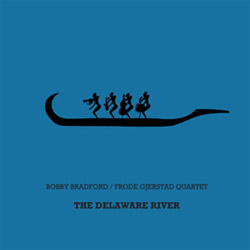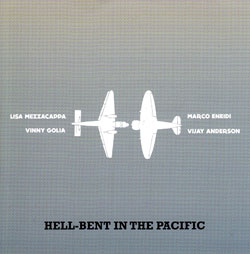
Two studio recordings recorded 2 years apart (1969, 1971) of "Frictions", a 6 part work, and the additional 2 part "Frictions Now" from the quartet of Michael Sell (trumpet), Dieter Scherf (sax & winds), Gerhard Konig (guitar & flutes) and Wolfgang Schlick (percussion).
Out of Stock
Quantity in Basket: None
Log In to use our Wish List
Shipping Weight: 4.00 units
Sample The Album:
Michael Sell–trumpet
Dieter Scherf–alto saxophone, oboe, piano, shepherds flute, shenai, prepared trumpet, bamboo flute
Gerhard Konig–guitar, prepared guitar, flute, double flute
Wolfgang Schlick–drums, metal
Click an artist name above to see in-stock items for that artist.
UPC: 4779022073854
Label: NoBusiness
Catalog ID: NBCD 79
Squidco Product Code: 21217
Format: CD
Condition: New
Released: 2015
Country: Lithuania
Packaging: Jewel Case
Frictions was recorded on July 12, 1969 at Walldorf Studio, Walldorf.
Frictions Now was recorded on July 9, 1971 at Walldorf Studio, Walldorf.
"Frictions was recorded on July 12, 1969 at Walldorf Studio, Walldorf and released as an edition of 300 vinyl records on a private label in 1969. The same year there was a second edition of 200. Frictions is an uninterrupted piece, which originally consisted of these compositions: Intro For Four (Scherf), Topology (Sell), Tone (Sell), Sounds For M (Scherf), Tone I (Sell), Ballad-Allintervallreihe (Scherf), Peaceless (Scherf) Frictions Now was recorded on July 9, 1971 at the same studio as Frictions. and released as a limited edition of 500 vinyl records on a private label in 1971."-NoBusiness
"If one thinks back to the beginnings of European or more exactly (West) German Free Jazz, the names of Manfred Schoof, von Schlippenbach, Brotzmann, Globe Unity, or Gunter Hampel immediately come to mind. Much less known is the existence of two more remarkable groups which set out to play and record the then-new music called -Free Jazz- at the end of the 1960s.
The "Free Jazz Group Wiesbaden" (FJGW) was one of those ensembles which today, undeserv-edly, are almost forgotten.
Dieter Scherf (alto saxophone -*1941), an engineer, and Michael Sell (trumpet - *1942), who had studied politics and chemistry, initially played Hard bop at the beginning of the sixties. Around 1965 both musicians developed a desire for an original sonic expression rather than continuing in music of American origin. The FJGW was eventually founded in 1968.
The other members of the co-operative group were Gerhard Konig (guitar - *1946) and Wolfgang Schlick (drums - *1941), although the thematic material, some of which was conventionally notated, was realised by Scherf and Sell.
During and after his time in school, Konig took lessons in guitar, flute, composition, and piano. While still a teen, he worked as a free-lanced musician, and continued to do so while studying sociology, playing in several bands and founding his own trio. He joined the FJGW in spring 1969, having played in a Soul group only weeks before. After the group broke up he continued to work as an independent artist, collaborating with the writer Adam Seide and others until his premature death 20 years ago.
Wolfgang Schlick studied graphics until his final examination in 1963.
Exhibitions in Germany and abroad did not prevent him from playing banjo and guitar in Dixie and Swing groups. From 1966 onward he concentrated as a drummer and became a founding member of the FJGW. He died in 2014. At the time the FJGW was formed, Wiesbaden didn't have a Free Jazz scene.
There was a small pool of like-minded musicians in nearby Frankfurt - Alfred Harth, Thomas Cremer and Herbert Joos from the 'Modern Jazz Quintet Karlsruhe' (the other neglected group!), or the trumpet player Malte Burba, who 15 years later would become the main soloist of Sell's compositions, were among the fellow artists.
Concerts by the FJGW could be heard mainly in the Jazz cellars and clubs of southwestern Germany. But the four young musicians also appeared in Belgium, Austria, Switzerland, Poland (Warsaw, Krakow) and for the 7th Biennale in 1971 at the Parc Floral in Vincennes, Paris. July 1969 saw the group entering a studio for the first time recording the LP "Frictions". As the established labels weren't interested, the FJGW had to produce and sell their initial release themselves.
In a similar manner they recorded their second release, "Frictions Now," in 1971, albeit without pre-conceived compositions thus freely improvising. In addition, an excerpt exists of a concert the group gave for the legendary 12th edition of the German Jazz Festival, shortly afterward issued on the LP "Born Free" (Scout, 1970). It was during this gathering of mostly Free Jazz musicians that Scherf, Sell, and Konig partici-pated in a meeting between the Art Ensemble of Chicago and a large group of mostly German musicians. An excerpt of this performance is also included on "Born Free".
While diverse points of reference to the Free Jazz of African-American heritage are clearly au-dible in the music of the FJGW, distinct ideas and forms of musical treatment are evident. There is an emphasis on spontaneous interaction, and the music unfolds in frequent variations of the timbral textures (Klangfarbe), the intensity and the density of their movements.
In 1972 the FJGW came to an end.
Dieter Scherf, who in his youth had studied classical clarinet for three years, played in the group `Interaction' in 1973, sometimes augmented by Albert Mangelsdorff. In 1974 he joined in a trio with the bassist Jacek Bednarek and drummer Paul Lovens, who was later replaced by the Turkish percussionist Bulent Ates. Both outfits recorded one LP for Scherf's label LST Records. The trio's release 'Inside-Outside Reflections' even saw a reissue in 2005 on Atavistic.
Scherf explained that "conceptional reasons," as well as severe problems with his teeth and consequently with his embouchure, led him to withdraw from music. The musicians' concert fees were miserable and it was impossible to make a living, so he went back into his studied profession, but worked also as a music teacher. Scherf, whose musical preferences are with "all good composers, but especially J.S. Bach, Indian music, Charlie Parker, Coltrane, Rollins, Bill Evans, Bud Powell, Lennie Tristano," has performed only rarely in public since the dissolution of the FJGW. Today he makes music only for his private delight - "all over the place," as he puts it.
Michael Sell - Free Jazz Group Wiesbaden
Michael Sell, on the other hand, has played more and more with his own ensembles since 1972. Early on he had established his label MISP Records. In addition, collaborations arose with Alfred Harth and with the "New Jazz Ensemble" (`Burning Flowers' - Bellaphon 1975) In the course of the '70s and '80s, composition became more important in his work. Sell himself identifies the watershed in 1978. Until 1981-1982, the recordings with his own groups are still rooted in jazz, despite the growing compositional superstructure. But in the years to follow the transition to contemporary classical music became more evident during his concerts and on his mostly self-produced recordings.
Today Michael Sell is a singular phenomenon as a composer, not bound to any school, and highly original. What has remained from his years as a jazz musician is to write music - if possible, for musi-cians he has selected himself.
If you haven't done it already, I suggest you push the play-button and listen to the sounds four young musicians had the courage to pursue more than forty years ago. We are in the need of such adventurous endeavours. Maybe more so today."-Ernst Nebhuth (with thanks to Ekkehard Jost for his permission to "plunder" his seminal work about European Free Jazz; especially his book "Europa's Jazz 1960 - 1980" from which I took a tiny bit)
Artist Biographies
Track Listing:
1. Frictions 37:36
2. Frictions Now Part I 17:19
3. Frictions Now Part II 18:35
Improvised Music
Jazz
Free Improvisation
European Improvisation and Experimental Forms
Quartet Recordings
Jazz Reissues
Instruments with Preparations
Search for other titles on the label:
NoBusiness.







